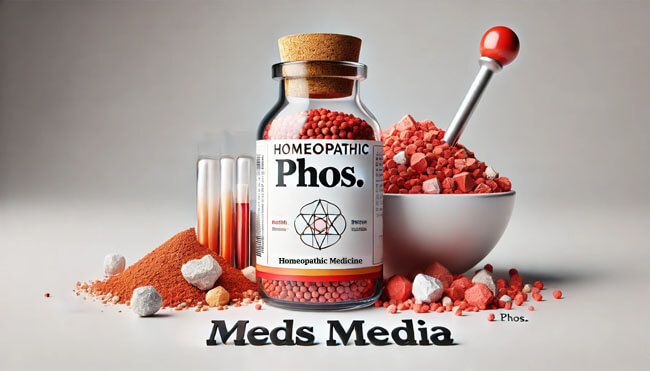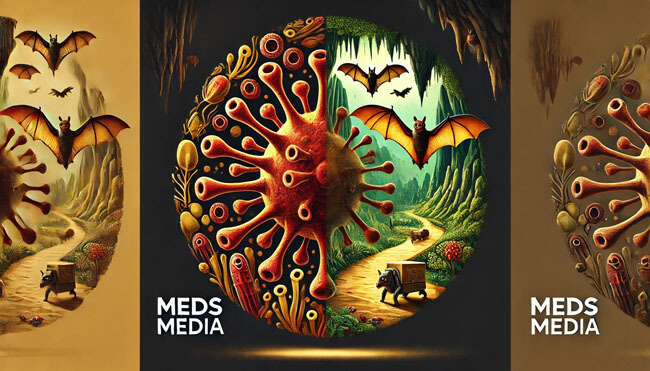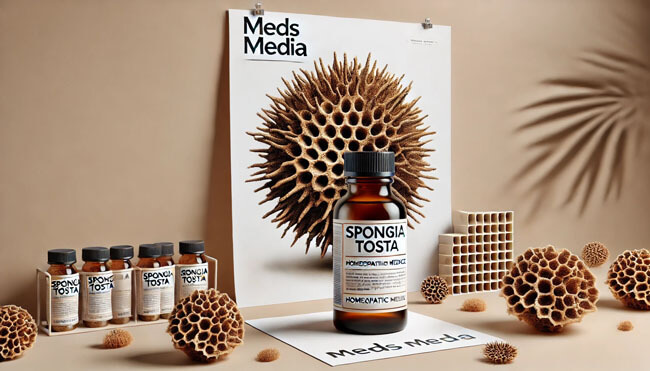Introduction
Homeopathy offers a unique and holistic approach to treating mental health conditions, including psychosis. Unlike conventional medicine, which often focuses on suppressing symptoms, homeopathy aims to address the underlying cause by restoring balance within the mind and body. Anti-psychotic remedies in homeopathy are carefully selected based on the individual’s overall mental, emotional, and physical state, rather than solely on the diagnosed condition. This article provides an in-depth look at key anti-psychotic remedies, their indications, associated symptoms, and insights into their use.
What Are Anti-Psychotic Remedies in Homeopathy?
Anti-psychotic remedies in homeopathy focus on addressing underlying miasmatic influences that contribute to severe mental and emotional disturbances. These remedies are chosen based on a comprehensive understanding of the patient’s symptoms, personality, and overall health. They aim to correct imbalances, reduce the intensity of symptoms, and support mental health naturally.
How Anti-Psychotic Remedies Work in Homeopathy
Homeopathic remedies work on the principle of “like cures like,” meaning that a substance causing certain symptoms in a healthy person can be used in a diluted form to treat similar symptoms in an ill person. The remedies aim to stimulate the body’s vital force, promoting self-healing from within. Homeopathy views psychotic conditions as deep-seated imbalances in the vital force, often resulting from suppressed emotions, trauma, or hereditary factors. The goal is to gently and gradually restore harmony and mental stability.
Key Characteristics of Anti-Psychotic Remedies
- Holistic Treatment: Addresses mental, emotional, and physical symptoms.
- Individualization: Remedies are customized based on the patient’s unique symptom profile.
- Focus on Underlying Cause: Aims to treat the root of the condition rather than simply managing symptoms.
Key Anti-Psychotic Remedies in Homeopathy
Here is a list of key homeopathic remedies commonly used for addressing psychotic symptoms:
Argentum Metallicum
- Indications: Delusions, paranoia, anxiety, and impulsiveness.
- Symptoms: Trembling, nervousness, fear of impending danger, and excessive talkativeness.
- Insights: Useful for patients who are anxious and restless, often with compulsive behaviors.
Argentum Nitricum
- Indications: Anxiety disorders, anticipatory fears, obsessive-compulsive tendencies.
- Symptoms: Impulsiveness, irrational fears, dizziness, and a feeling of being trapped.
- Insights: Beneficial for those who experience stage fright or anxiety before important events.
Arsenicum Album
- Indications: Severe anxiety, fear of death, compulsive behavior, and restlessness.
- Symptoms: Restless pacing, intense fear, exhaustion, and perfectionism.
- Insights: Ideal for individuals with extreme anxiety, often accompanied by a need for order and control.
Arsenic Iodatum
- Indications: Chronic mental fatigue, depression, and irritability.
- Symptoms: Worrying, restlessness, nervous energy, and poor concentration.
- Insights: Helpful for individuals who are easily overwhelmed and anxious about the future.
Benzoic Acid
- Indications: Mental dullness, confusion, and memory problems.
- Symptoms: Forgetfulness, irritability, difficulty focusing, and foul-smelling urine.
- Insights: Suitable for patients who are mentally slow, forgetful, and often melancholic.
Berberis Vulgaris
- Indications: Depression with a focus on physical ailments, especially related to the kidneys.
- Symptoms: Sadness, irritability, confusion, and dull pain in the lower back.
- Insights: Often prescribed for individuals who are depressed and experience physical discomfort simultaneously.
Calcarea Arsenicosa
- Indications: Chronic anxiety, fears, delusions, and paranoia.
- Symptoms: Weakness, trembling, fear of impending disaster, and extreme fatigue.
- Insights: Recommended for patients who are mentally exhausted and consumed by irrational fears.
Causticum
- Indications: Melancholy, grief, anxiety, and hopelessness.
- Symptoms: Brooding, fear of losing control, compulsive behavior, and irritability.
- Insights: Often used for patients who have become bitter or disillusioned due to life’s hardships.
Clematis
- Indications: Daydreaming, escapism, lack of concentration.
- Symptoms: Mental dullness, detachment from reality, poor focus, and drowsiness.
- Insights: Ideal for individuals who escape reality through fantasies and daydreams.
Colchicum
- Indications: Mental confusion, irritability, and hypersensitivity.
- Symptoms: Aversion to strong smells, irritability, confusion, and stomach issues.
- Insights: Best suited for patients who become mentally distressed by sensory overload.
Dulcamara
- Indications: Seasonal affective disorder, mood swings, irritability.
- Symptoms: Depression, anger, mood swings, and sensitivity to cold and damp conditions.
- Insights: Effective for individuals whose mental health deteriorates with changing seasons.
Fluoric Acid
- Indications: Unstable mental state, impulsive behavior, lack of moral restraint.
- Symptoms: Recklessness, indifference to social norms, restlessness, and discontent.
- Insights: Suitable for patients with a tendency towards unethical behavior or poor self-control.
Iodium
- Indications: Agitation, anxiety, restlessness, and obsessive thoughts.
- Symptoms: Constant movement, fear of being alone, irritability, and weight loss.
- Insights: Often prescribed for individuals who are anxious, restless, and feel better when occupied.
Kali Bichromicum
- Indications: Depression, confusion, irritability, and compulsive behavior.
- Symptoms: Obsessive cleanliness, confusion, mental dullness, and thick discharges.
- Insights: Beneficial for patients who exhibit rigidity in thoughts and behaviors, often fixated on cleanliness.
Kali Carbonicum
- Indications: Rigidity, anxiety, fear, and mental dullness.
- Symptoms: Stubbornness, fear of impending disaster, back pain, and sensitivity to cold.
- Insights: Best for those who are rigid, stubborn, and fearful, often with accompanying physical complaints.
Kali Iodatum
- Indications: Anxiety, restlessness, and depressive states.
- Symptoms: Restless, irritable, suspicious, and difficulty breathing.
- Insights: Often used for patients with depressive tendencies, who experience both mental and physical restlessness.
Lycopodium
- Indications: Low self-esteem, inferiority complex, and anxiety.
- Symptoms: Fear of failure, stage fright, digestive issues, and irritability.
- Insights: Excellent for those who mask their insecurities with a façade of confidence.
Magnesia Carbonica
- Indications: Depression, irritability, and despondency.
- Symptoms: Hopelessness, fatigue, irritability, and gastrointestinal disturbances.
- Insights: Suitable for individuals who are melancholic, often with accompanying physical symptoms.
Magnesia Muriatica
- Indications: Emotional suppression, grief, and resentment.
- Symptoms: Mood swings, anger, digestive issues, and headaches.
- Insights: Ideal for those who suffer from suppressed emotions and harbor resentment.
Magnesia Phosphorica
- Indications: Nervous tension, anxiety, and irritability.
- Symptoms: Irritability, muscle cramps, headaches, and sensitivity to cold.
- Insights: Often used for patients with nervous tension and irritability, often with physical complaints.
Mezereum
- Indications: Depression, irritability, and hypochondria.
- Symptoms: Sensitivity to cold, fear, irritability, and persistent skin issues.
- Insights: Best suited for individuals with chronic mental and physical symptoms, particularly skin complaints.
Muriatic Acid
- Indications: Despair, apathy, and irritability.
- Symptoms: Fatigue, restlessness, indifference, and gastrointestinal disturbances.
- Insights: Effective for those who have become apathetic and indifferent, often with accompanying physical symptoms.
Natrum Arsenicosum
- Indications: Anxiety, irritability, and despair.
- Symptoms: Fear, restlessness, irritability, and digestive issues.
- Insights: Often used for patients who are fearful, irritable, and suffer from digestive problems.
Natrum Carbonicum
- Indications: Depression, sensitivity to criticism, and introversion.
- Symptoms: Anxiety, worry, digestive disturbances, and fear of humiliation.
- Insights: Best suited for individuals who are sensitive, introverted, and prone to sadness.
Natrum Muriaticum
- Indications: Grief, depression, and emotional vulnerability.
- Symptoms: Irritability, mood swings, headaches, and cravings for salty foods.
- Insights: Ideal for those who suppress their emotions and suffer from deep-seated grief.
Natrum Sulphuricum
- Indications: Suicidal tendencies, depression, and sensitivity to dampness.
- Symptoms: Despondency, irritability, headaches, and digestive issues.
- Insights: Often prescribed for patients with depression and suicidal thoughts, especially in damp weather.
Nitric Acid
- Indications: Anxiety, fear, and irritability.
- Symptoms: Irritability, sharp pains, ulcers, and cravings for salty foods.
- Insights: Suitable for individuals who are irritable and prone to anger, often with accompanying physical complaints.
Opium
- Indications: Delirium, confusion, and insensitivity.
- Symptoms: Drowsiness, stupor, lack of response to stimuli, and constipation.
- Insights: Useful for patients who are mentally numb, detached, and unresponsive.
Phosphorus
- Indications: Anxiety, restlessness, and over-sensitivity.
- Symptoms: Fear, anxiety, bleeding tendencies, and desire for company.
- Insights: Ideal for individuals who are anxious, fearful, and crave attention.
Phosphoric Acid
- Indications: Apathy, depression, and mental exhaustion.
- Symptoms: Weakness, indifference, hair loss, and desire for cold drinks.
- Insights: Best for those who are mentally and physically exhausted, often with accompanying hair loss.
Platina
- Indications: Narcissism, superiority complex, and irritability.
- Symptoms: Anxiety, arrogance, aversion to company, and cramping pains.
- Insights: Suitable for individuals who are haughty, narcissistic, and prone to mood swings.
Psorinum
- Indications: Despair, anxiety, and sensitivity to cold.
- Symptoms: Hopelessness, fear, irritability, and chronic skin issues.
- Insights: Often used for patients with deep-seated mental and physical symptoms, particularly those who feel hopeless.
Pulsatilla
- Indications: Mood swings, weepiness, and emotional dependency.
- Symptoms: Tearfulness, desire for sympathy, changeable moods, and aversion to fatty foods.
- Insights: Best for individuals who are emotionally dependent, often seeking comfort and reassurance.
Sepia
- Indications: Depression, irritability, and indifference.
- Symptoms: Mood swings, fatigue, aversion to family, and craving for sour foods.
- Insights: Ideal for those who are depressed, irritable, and feel disconnected from loved ones.
Stannum Metallicum
- Indications: Depression, anxiety, and fatigue.
- Symptoms: Weakness, sadness, irritability, and respiratory issues.
- Insights: Suitable for individuals who are mentally and physically exhausted, often with accompanying respiratory complaints.
Staphysagria
- Indications: Suppressed anger, resentment, and depression.
- Symptoms: Irritability, sensitivity, urinary issues, and desire for solitude.
- Insights: Often prescribed for patients who suppress their emotions, particularly anger and resentment.
Stramonium
- Indications: Fear, delusions, and violent outbursts.
- Symptoms: Night terrors, fear of darkness, violent behavior, and trembling.
- Insights: Suitable for individuals who are prone to extreme fear, delusions, and aggression.
Sulphur
- Indications: Anxiety, irritability, and obsession with cleanliness.
- Symptoms: Restlessness, fear, irritability, and skin issues.
- Insights: Best for those who are anxious, restless, and obsessed with cleanliness, often with accompanying skin complaints.
Tarentula Hispanica
- Indications: Hyperactivity, restlessness, and mood swings.
- Symptoms: Anxiety, irritability, desire to keep busy, and sensitivity to noise.
- Insights: Often used for patients who are restless, hyperactive, and prone to mood swings.
Thuja Occidentalis
- Indications: Delusions, obsessive thoughts, and depression.
- Symptoms: Fear of being alone, compulsive behavior, warts, and skin issues.
- Insights: Ideal for individuals who are prone to delusions, particularly regarding their health or appearance.
Using Anti-Psychotic Remedies in Homeopathy
Selecting the correct anti-psychotic remedy requires a deep understanding of the patient’s mental, emotional, and physical state. A trained homeopath will carefully assess the patient’s unique symptom profile and choose a remedy that closely matches the individual’s overall condition. Treatment is usually gradual and aimed at achieving long-term mental stability. It is essential to work closely with a qualified homeopath when dealing with severe mental health conditions to ensure safe and effective treatment.
LEADING ANTI-SYCOTIC MEDICINES:
Abrotanum, Actaea racemosa, Agaricus mus., Agnus castus, Argentum met., Alumina, Ammonium benzoicum, Ammonium phosphoricum, Anacardium, Anagallis, Angustura vera, Ant.crudum, Antimonium tart., Apocynum cannabinium, ARANEA., Arbutus andrachne, Arg.nit., Ars alb., Asterius, Aurum mur natronatum, Bacillinum, Baryta carb., Benzoic acid, Berb. vulg., Bryonia, Calc.carb., Calc.iod., Cannabis sat, Carbo.sulph., Carbo.veg., Carbo an, Caulophyllum, CAUSTICUM, Chamomilla, CONIUM., Dulcamara., Graphites, Helleborus, Hepar sulph., Hyoscyamus, Kali.sulph., Kalmia latifolia, Lachesis, Lapis albus, Ledum pal, Lilium tigrinum, Lithium carb, Lycopodium., Lycopus virginicus, Mag Phos, Mancinella, Mang.acet, MEDORRHINUM, Mephities, Merc.cor, Merc. dulcis, Merc. iod. flavus, Merc. iod. ruber, Merc. sulph, Murex, Mygale lasiodora, Myrica, NAT.SULPH., Natrum mur, Natrum nitricum, NIT. AC., Nitri spiritus dulcis, Ocimum can, Oleum santali, Oophorinum, Operculina turpethum, Origanum, Ostrya virginica, Oxydendron, Palladium, Pareira brava, Passiflora incar, Penthorum, Petroselinum, Phosphorus, Physalis, Piper methysticum, Pituitrin, Platina, Plumbum Met, PULSATILLA, PYROGEN, RADIUM BROMIDE., Raphanus, Rhamnus cali., Rhodium, Rhododenron, Rhus tox, Rhus aromatica, Rhus glabra, Ruta grav., Sabal ser., Sabina., Sanguinaria nit, Sanicula, Sarsap, Scrophularia, Secal., Selen., SEPIA, Serum Anguillar, Sinnab., Solanum Lycopers, Spiranthes, STAPHYSAG., Stellaria media, Sticta pulmonalis, Stigmata maydis, Stillingia, Stramo, Strontia, Strophanthus hisp, Strychnia, Sulfonal, Sulphur iod., Sumbul, Tannic ac., Tarantula hisp., Taxus baccata, Tellurium, Terebinth, Teucrium marum varum, Theridion, Thiosinaminum, Thlaspi bursa pastoris, THUJA, Thymol, THYROIDINUM, Torula cerevisiae, Tribulus terrestris, Triosteum perfoliatum, Tuberculinum, Turnera, Tussilago petasites, Uranium Nitricum, URTICA URENS, Ustilago maydis, Uva ursi, Vaccininum, VARIOLINUM; Veratrum album, Veratrum Vir, Viburnum Op, Viola Tricolor, Viscum Album, X-Ray, Yucca filamentosa, Zincum Met, Zingiber,
Related links for Further Exploration:
Select Your Homeopathic Medicine Dose and Potency
Potency Selection Guide
Relationship of Remedies
Why Meds Media guides are different
We focus on clear, practical explanations of homeopathic and natural health topics so you can understand remedies, symptoms, and lifestyle changes in simple language.
Meds Media is an educational resource only. Always consult a qualified doctor or homeopathic practitioner before starting, stopping, or changing any treatment.
Similar Posts You may also like

LM Potencies in Homeopathy Explained | Insights from the 6th Edition of the Organon
Zincum Picricum Homeopathic Medicine & Personality | Uses, Benefits & Indications
Zincum Phosphoricum Homeopathic Medicine & Personality | Uses, Benefits & Indications
Zincum Iodatum Homeopathic Medicine & Personality | Uses, Benefits & Indications
Zincum Bromatum Homeopathic Medicine & Personality | Uses, Benefits & Indications
Zea Homeopathic Medicine & Personality | Uses, Benefits & Indications
Zincum Aceticum Homeopathic Medicine & Personality | Uses, Benefits & Indications
Zincum Cyanatum Homeopathic Medicine & Personality | Uses, Benefits & Indications
Zincum Muriaticum Homeopathic Medicine & Personality | Uses, Benefits & Indications
Zincum Oxydatum Homeopathic Medicine & Personality | Uses, Benefits & Indications
Zincum Sulphuricum Homeopathic Medicine & Personality | Uses, Benefits & Indications

Phosphorus Homeopathic Medicine & Personality | Uses, Benefits & Indications
Causticum Homeopathic Medicine & Personality | Uses, Benefits & Indications

Blood Clot in Eyes: Symptoms, Homeopathic Treatment & Prevention

Marburg Virus Disease: Causes, Symptoms & Treatment

Veratrum Viride Homeopathic Medicine & Personality | Uses, Benefits & Indications

Spongia Tosta Homeopathic Medicine & Personality | Uses, Benefits & Indications

